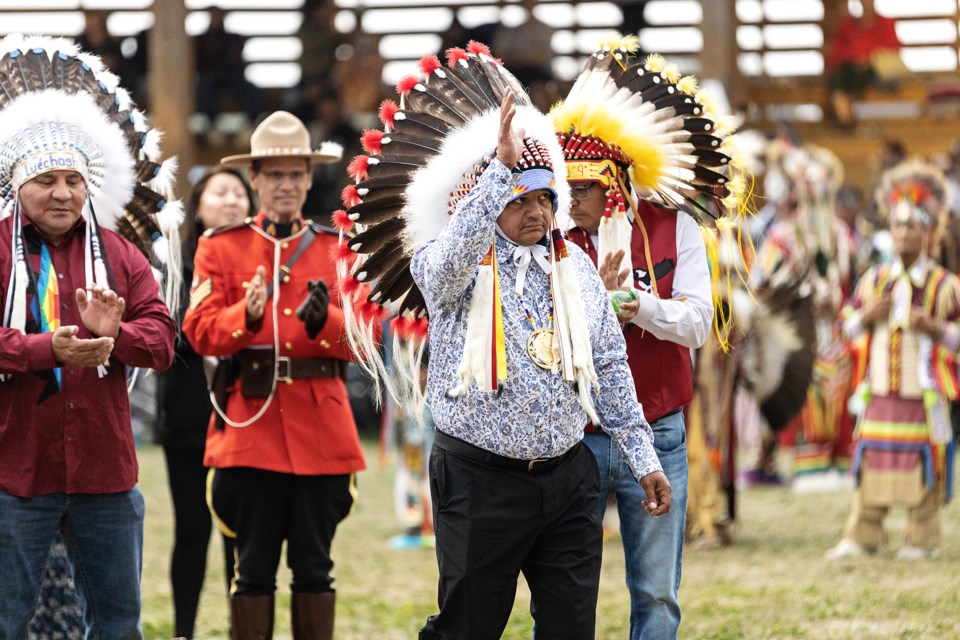LAKELAND - The opening of Indigenous-owned apartments in north Edmonton is an important breakthrough for affordable housing, says Frog Lake First Nation Chief Greg Desjarlais, but there is still a mountain of work to do in order to decrease homelessness and improve the quality of life for Indigenous people.
On Aug. 5, the province announced the opening of the first of four buildings in north Edmonton meant to provide housing to Indigenous people with rents capped at 30 per cent of their gross household income. Each building has eight units, for a total of 32, and the other three buildings will open sometime this fall.
“With this development, we want to empower our people. We want to lift them up,” Desjarlais said.
“We want to provide quality, affordable housing, so that our people can go to school and become the next ministers in this country, the next lawyers, the doctors, and reach for those jobs on top of the tree now, because the ones on the bottom are all picked off.”
The new units in north Edmonton, which were funded in part with $3 million from the province and $3 million from the federal government, belong to Tribal Chiefs Ventures Inc. (TCVI), a non-profit corporation governed by the chiefs of Beaver Lake Cree Nation, Cold Lake First Nation, Frog Lake First Nation, Heart Lake First Nation, Kehewin Cree Nation and Whitefish Lake First Nation No. 128.
People of those six nations will be given first access to the homes, but all Indigenous people are eligible to apply for them.
TCVI CEO Cameron Alexis said it took three years of constant lobbying and writing proposals to get this far.
“It's huge for the people because it's an opportunity to build, own and operate in urban and even outlying areas,” he said, adding many people from the six nations go to Edmonton for work, education or health care. The locations of the buildings were selected for how close they are to hospitals, schools, transit and other amenities.
“We figured we physically need to provide homes for them, and quality homes, so they can have a sense of self-esteem, empowerment and joy that they're going into a new home, as opposed to homes that are not in very good condition.”
Alexis said more than 130 people have already applied for the units.
“We're continuing to analyze and negotiate to perhaps build some more,” he said.
Fighting to improve quality of life
TCVI initially applied to build homes in rural areas and towns around the six member nations, but that application was denied. Alexis said that forced them to revisit their proposal and re-energize themselves.
“It's been a lot of work, but First Nations can do it. It's time for us to start looking after our own destiny,” he said.
“We want to try to take our people off the streets as much as we can, and this is our contribution. And we'll continue to do so.”
Frog Lake First Nation had a lot of homes built when it was an oil-rich band, Desjarlais explained, but in recent years there has been no movement on new builds. The need for housing has kept growing, though – he recalls how two duplexes that were built had more than 100 applicants.
“Housing is always an issue, and affordable housing is an issue, not just on First Nations communities, but throughout the country,” said Desjarlais. “It's also a health issue, because without a house, how can one stand on their feet? How can a kid or a student go to school? And with the price and cost of living, for many people it's not a reality.”
Both Desjarlais and Alexis see federal and provincial efforts as key pieces in the fight against poverty and inequality.
“I think Canada needs to do a paradigm shift on how to manage poverty. If we can manage poverty, then we can manage positivity, self esteem, our work ethics, career path – everything,” said Alexis.
“We need to start looking at that rather than just look the other way.”



